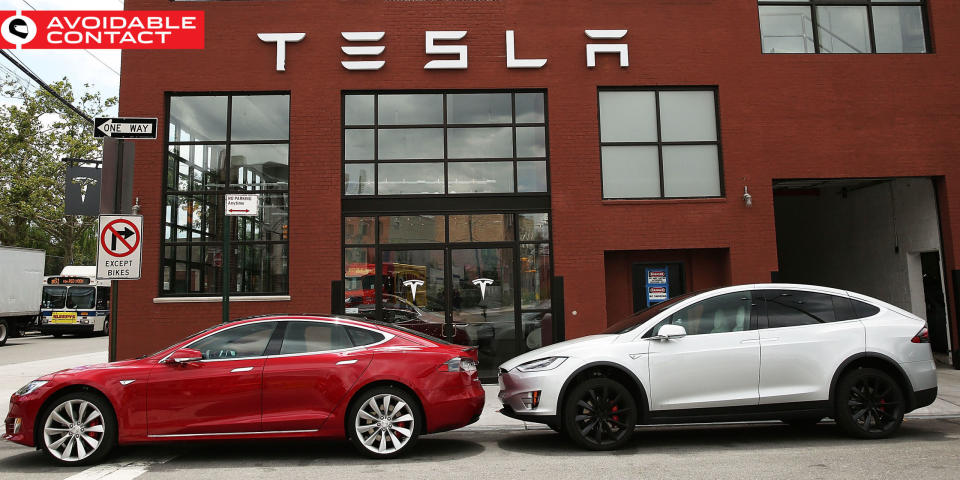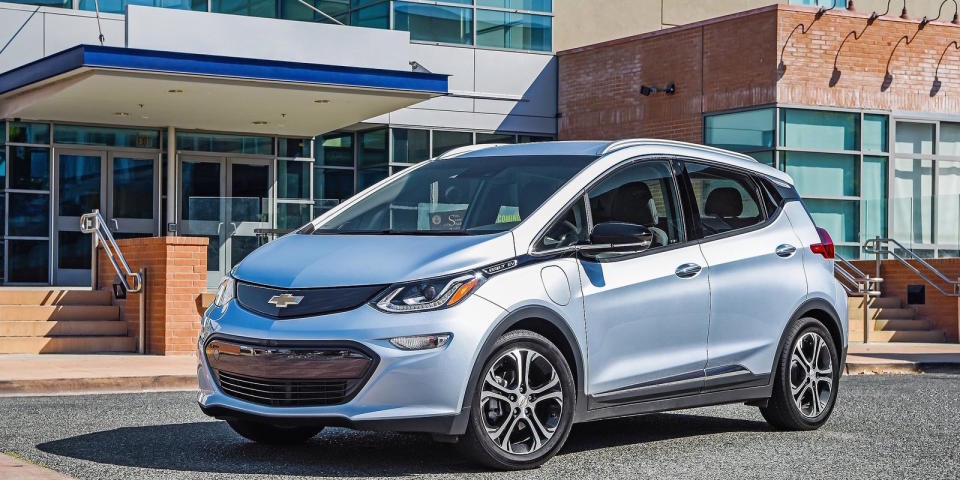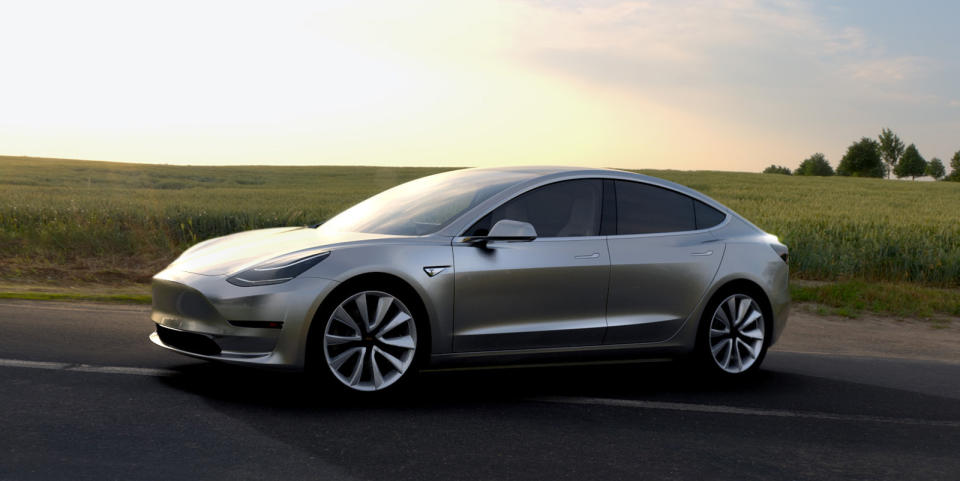The Case for a Tesla-GM Merger

The business world is abuzz with the news: as of this writing, Tesla's total value has soared past that of Ford and is heading towards the market's valuation of General Motors. A lot of people are pretending to be very surprised about this; after all, Tesla is a money-losing small-batch builder of impractical and occasionally trouble-prone boutique Veblen goods, while Ford is a massive, highly competent, and frequently profitable automaker with enough factory-floor space to swallow Tesla many times over.
(This was originally published April 5th, 2017 and is being promoted today because Tesla is now worth more than GM...)
The above does not matter. Ford is a much better carmaker than Tesla, but we live in an era where brick-and-mortar companies frequently play second fiddle to apps and platforms and clouds and other entirely ephemeral ideas. It suits the stock market just fine, because the stock market is much like the baseball-card market, or the art market, in that it serves more as a reflection of prevailing views than as any truly prescient or even intelligent verdict regarding a company's merit. It's an illusion. Of course, it is an illusion with the power to build fortunes and destroy lives in a millisecond.
In this case, the illusion also presents Tesla with the power to save itself. Although I have been, and continue to be, bullish on Elon Musk's prospects, I'm often told by more sober and successful men that Tesla is not built on sound business principles. That you can't survive forever building low-volume, no-profit cars that require leading-edge, high-buck R&D. They tell me that Tesla doesn't really know how to build cars, and they certainly don't know how to build cars in volume. They are just a little company with a better idea.

That phrase–little company with a better idea–could also be used to describe the American Bantam firm, the original winner of the quarter-ton truck project that became the "Jeep" during World War II. The government liked American Bantam's design best of all, but they ended up giving Willys Overland the rights to build it because American Bantam was too small to deliver the required volume. In the end, Willys couldn't build enough of them, and Ford got involved. That's a hugely oversimplified description of events, so please hold your angry comments, but it provides the gist of the situation.
Right now, Tesla knows how to build electric cars that people want. They have brand value and they have momentum. What they do not have is enough production capacity, and enough manpower, to deliver electric cars to Joe Average out there. As it so happens, there does happen to be a company with those those things: General Motors. As they have shown with the Volt, GM is pretty good at delivering large quantities of electric-capable vehicles. They have all the spare production capacity in the world and they have a lot of scary-good engineers on the payroll.
What GM does not have: untainted brand perception, charismatic leadership, or customer goodwill. The Volt suffers from its association with Chevrolet and GM. If the only place to buy a Volt was the Apple Store, every celebrity in the world would have five of them and the waiting list would stretch into the next decade. Unfortunately, it's actually sold with the same name and badge that graced the Citation and the Celebrity Eurosport, so nobody seems to care about it.
The potential benefits of a Tesla-GM merger are plain to even a business-school dropout like your humble author. You put together a carmaker with mojo and a carmaker with capacity. Peanut butter in the chocolate. Get the idea? All of a sudden, a mildly-revamped Volt with "Tesla DNA" is selling like hot cakes at forty grand, because it's a cheap Tesla instead of a hugely-expensive Chevy.

Forget the Gigafactory and all those headaches. General Motors has factories aplenty. And with the pros from Detroit on the case, Tesla can focus on innovation instead of sales-and-service support. They also have a dealer network that can be pressed into service if necessary, although in the twenty-first century we tend to think of old-school dealers as liabilities instead of assets. Still. It would be nice to be able to take your Model S P100D in for service at your local Chevy-Cadillac rural dealer if the necessity arose.
General Motors has been absorbing brands since before Elon Musk's parents were born, and they've also destroyed more good nameplates than an engraving machine at your local Staples, but this time it would be different, because Tesla ain't no minnow swimming helplessly away from the RenCen shark. It's a hugely valuable company that could demand the best seats at the boardroom table–and get it. This could truly be the "merger of equals" we were promised back when Daimler-Benz gutted Chrysler like a fresh fish and left the entrails to rot in the hands of the American taxpayer.
Could it fail? Absolutely. But it's also possible that Tesla and GM will fail separately. Perhaps more possible. After all, these are two companies with fundamental problems that aren't going away any time soon. It just happens to be the case that these problems match up with available solutions when you put the firms together, just like the broken edges of a "cracked-cap" connecting rod magically meet up when you bolt it in place.

Even if you don't like the idea of a Tesla-GM merger, you have to admit that it would shake things up a bit in the American auto industry, and probably for the better. It would probably also get our putative moral superiors in the finance and tech industries properly upset. The very thought of merging a "legacy" company with the very newest kid on the block! Absolutely crazy. But it's crazy enough to work.
Blame the market for the conditions that make it possible, if you like. Speaking personally, I like the potential benefits of combining the biggest carmaker in the country with the best ideas possible. Biologists have a term for this: "hybrid vigor." In this case, "hybrid" has nothing to do with the Volt–but maybe it should. That's a truly buzz-worthy concept, and it's one that might work as well in the consumer market as it would in the stock market.
Born in Brooklyn but banished to Ohio, Jack Baruth has won races on four different kinds of bicycles and in seven different kinds of cars. Everything he writes should probably come with a trigger warning. His column, Avoidable Contact, runs twice a week.
You Might Also Like

 Yahoo Autos
Yahoo Autos 